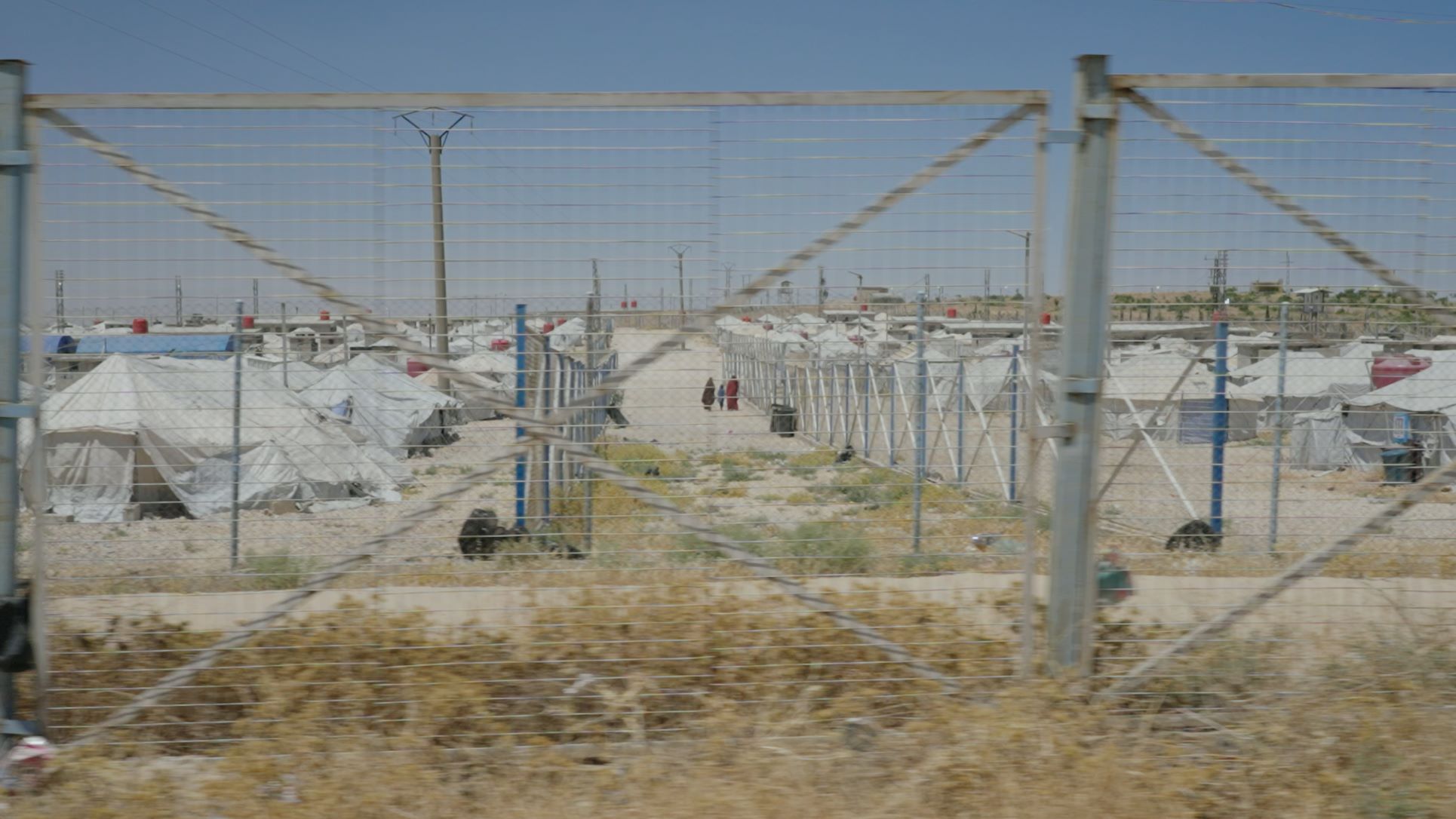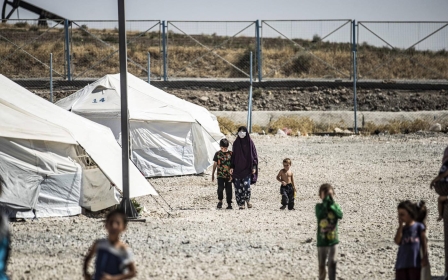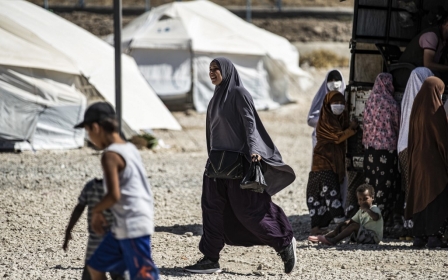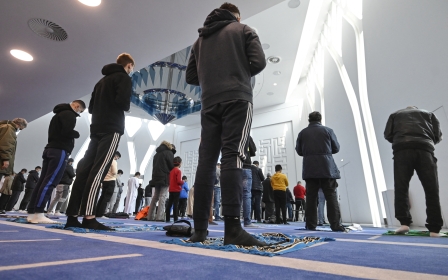France came to Syria with a list of children to take home. One was left behind
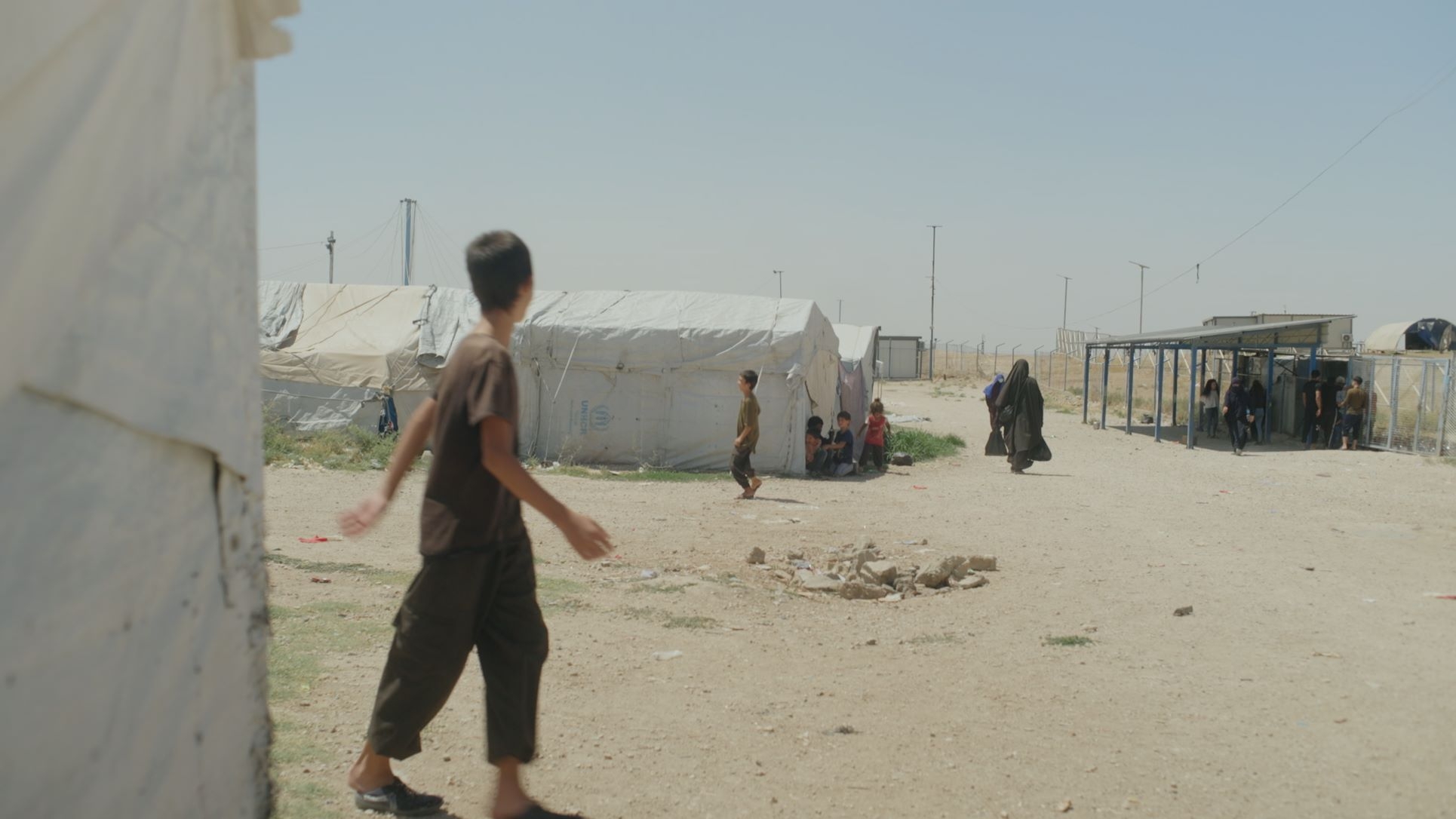
Ali was meant to be amongst the selected few French citizens to be repatriated from Syria to France this summer. Instead, the six-year-old French boy was left behind to live in a tent in al-Roj camp, an open-air prison in the country's northeast.
Ali sits in the tent, looking terrified of a Tunisian woman, a former member of the Islamic State group (IS), to whom he had been entrusted by the Kurdish authorities running the camp.
The boy lost his mother, brothers and sisters in the eastern village of Baghouz during the weeks-long operation led by the international anti-IS coalition to seize the last territory held by the militant group. Only Ali's father, a suspected IS member, survived. He has since been held in a prison run by the Syrian Democratic Forces.
Ali refuses to speak French, yet seems to understand when asked simple questions. But he remains silent, wriggling his fingers.
The former IS member, wearing a black niqab, her hands covered in gloves, says that she takes care of the boy as if he were her own son. But Ali looks lost.
His relatives in France located him a few months ago, after a long and difficult search during which they thought that he, too, had not survived. Once he was found, they immediately alerted the French foreign ministry, which put Ali's name on the list of citizens to be repatriated in July.
But when French officials travelled to al-Roj to repatriate the group, the Tunisian woman refused to hand him over. For reasons that are unclear, the French authorities complied and did not bring the boy back to his family.
Middle East Eye has reached out to the French foreign ministry for comment but had received no response by the time of publication.
'They ask us why'
Every day just before noon, al-Roj comes alive. Children wearing backpacks, some emblazoned with images of superheroes, walk to a school housed in prefabs provided by Save the Children.
A small playground and a metal set of swings are the only distraction for these children, who are primarily under 10 and have spent more time living in the camp than in the heart of the so-called Islamic State.
Bursting out in laughter, a little French girl in a flowery dress, pointing to a white, rickety tent, says: "You know, tomorrow I'm going to France. My house is here; I live here with my mum."
The girl and her mother, however, did not leave for France. Instead, she and her friends will continue to wander between the tents on dusty afternoons, while some children ride bikes or scooters bought with money sent by their families.
"There are some French women who receive money. This allows them to live a little better, and it eases our burden," Rachid Afrin, the Kurdish leader of al-Roj camp, tells MEE.
"Each country must bring back all its women and children. Here, we have more and more problems because of some countries' selection process. Then these women come and ask us why they did not take everyone."
About 60,000 women and children live in two sprawling, Kurdish-run camps, al-Roj and al-Hol, in the semi-autonomous Hasakah region of Syria. According to Laurent Nunez, France's former national coordinator for intelligence and counterterrorism, about 100 French women and 250 children still live in al-Roj. Some rights groups, however, estimate that there are 75 women and 160 children remaining in the camps.
'Not on the famous list'
On 5 July, French authorities drove up to the camp in vans to collect 16 former IS members and 35 children, including seven orphans, whose names were on the list drawn up by the foreign ministry. The move broke with France's case-by-case policy of repatriating children without their mothers.
Early that morning, Manon, a 28-year-old French woman who has been held in the camp for over three years, rushed to see if she and her son could get in one of the vans.
"But I was not on this famous list," Manon says.
Manon joined IS in 2014, but claims she had tried and failed several times to escape the militant group.
'We are all aware that we will go to prison for several years, but we still ask for our repatriation. I want to be judged by France and not stay here'
– Manon, former IS member at al-Roj
"We are all aware that we will go to prison for several years, but we still ask for our repatriation. I want to be judged by France and not stay here," she says. "The living conditions are impossible for our children in tents. I talk about France to my son all the time. I describe the sea and the mountains to him. My son knows he is French. He is not Syrian, even though he was born here."
The French authorities did not explain how the 16 women were chosen for repatriation, but upon arrival in France all of them were charged and jailed ahead of trial, and their children placed in foster care.
Among these women was the widow of one of the Islamist militant attackers who stormed the Bataclan concert venue in Paris in November 2015 and killed dozens of people. She was charged with associating with terrorists, sources close to the case told AFP.
On Wednesday, the European Court of Human Rights condemned France over its refusal to repatriate two of its female citizens from Syria, saying the Macron government would be expected to re-examine its decision.
The case was brought by the parents of the women, who had travelled with their partners to parts of Syria and Iraq then controlled by IS.
'They didn't come back for us'
Desperate for a life away from the camp and the horror of witnessing the death of their parents in Baghouz, two teenage sisters stood expectantly by the vans taking other French nationals to Erbil airport. But 14-year-old Ines and Zahra were never called to board by French foreign ministry officials.
The girls were taken on by an IS member of Moroccan origin, who they say beats them.
'I tell myself it's dead; no one will come and take us back to France. They are going to leave us here'
– Ines, 14
"I want to go back to France. When they came to get the others, the French here told me 'We will return in a few days.' But they didn't come back for us," says Ines. "I cried for two days after they left."
The teenager is struggling to understand why the French officials lied to her about promising to return quickly for them.
Ines, whose right arm is paralysed due to a bullet lodged in her posterior collarbone, does not have the strength to be angry any more. Sitting at the back of the tent, her older sister Zahra says nothing. She does not move, only stares into space, resting her head on her hands.
Zahra was traumatised by the last, particularly violent, days of the siege of Baghouz. Abandoned in the prison camp, without any psychological support, she has been trapped in the memory of those last moments.
"I tell myself it's dead; no one will come and take us back to France," her sister says with tears in her eyes. "They are going to leave us here."
This article is available in French on Middle East Eye French edition.
Middle East Eye propose une couverture et une analyse indépendantes et incomparables du Moyen-Orient, de l’Afrique du Nord et d’autres régions du monde. Pour en savoir plus sur la reprise de ce contenu et les frais qui s’appliquent, veuillez remplir ce formulaire [en anglais]. Pour en savoir plus sur MEE, cliquez ici [en anglais].


